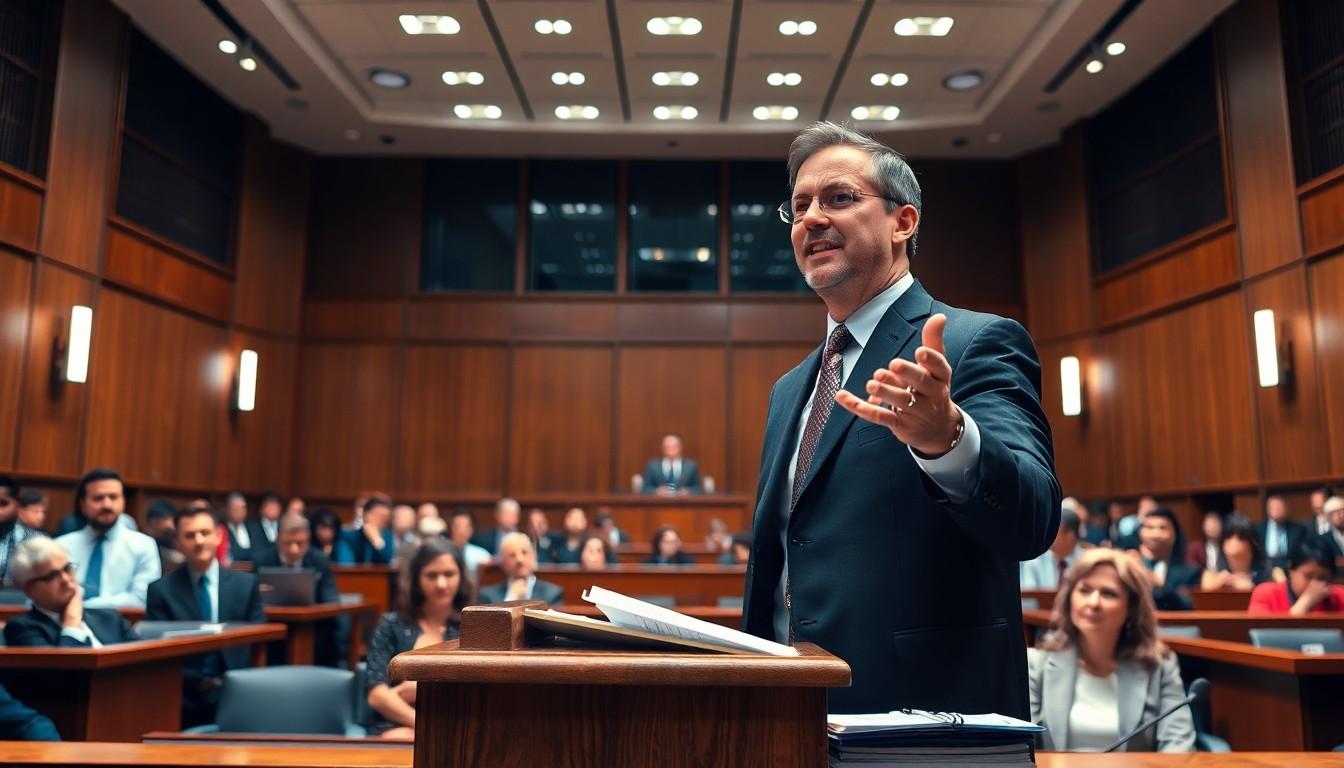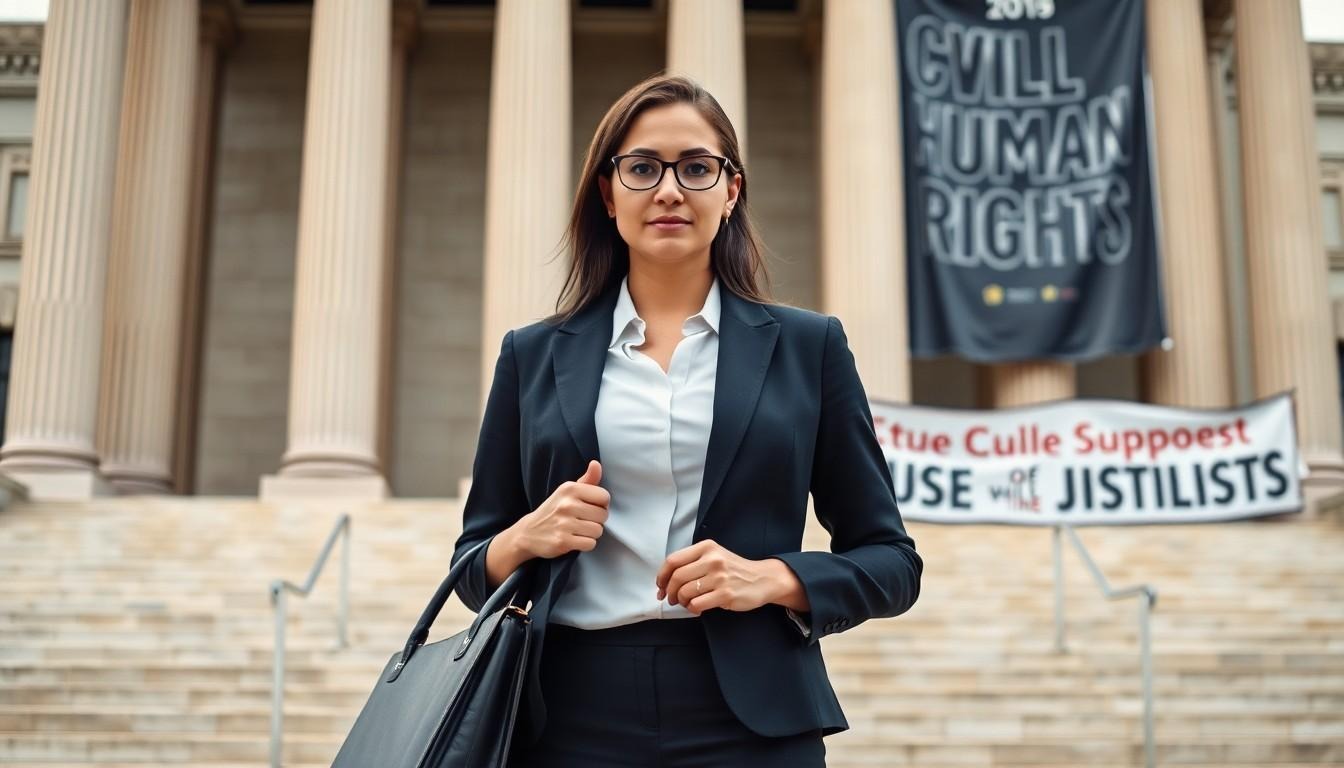In a world where the phrase “you can’t fight city hall” often feels like an unavoidable truth, human rights lawyers step in like superheroes without capes. These legal warriors battle injustice, ensuring that every individual’s rights are respected, protected, and upheld. They’re the ones who remind us that the law isn’t just a set of rules; it’s a tool for change, empowerment, and sometimes, a good dose of courtroom drama.
Armed with knowledge and a fierce commitment to justice, human rights lawyers tackle issues ranging from discrimination to freedom of speech. They navigate the complex legal landscape with the agility of a cat on a hot tin roof. Whether it’s advocating for marginalized communities or challenging oppressive regimes, these professionals are the unsung heroes fighting for a fairer world—one case at a time.
Human Rights Lawyers
Human rights lawyers advocate for the protection and promotion of fundamental rights. Their work often focuses on areas such as civil liberties, social justice, and equality before the law. They play a crucial role in challenging laws and policies that violate human rights. Clients typically include marginalized groups, refugees, and victims of state abuse.
Skills necessary for human rights lawyers include legal research, negotiation, and exceptional communication. They often collaborate with NGOs and international organizations to effect change on a broader scale. Additionally, pro bono work forms a significant part of their contributions, allowing them to provide legal assistance to those unable to afford it.
The challenges these lawyers face can be significant. They frequently encounter hostile legal environments and threats from authorities. Support for these professionals, including protective measures and legal support, proves vital for their ability to operate effectively.
Significant efforts lead to landmark cases that shape human rights law worldwide. Noteworthy victories often draw attention to systemic failures and promote accountability. Growing global recognition of human rights issues fuels demand for skilled advocates.
Training and education in human rights law typically involve specialized courses focused on international human rights treaties and advocacy techniques. Graduates often pursue careers in various settings, including litigation, policy-making, and academia. Ultimately, human rights lawyers contribute to a more just society by holding powerful entities accountable for their actions.
Roles and Responsibilities

Human rights lawyers undertake crucial responsibilities that uphold justice and protect individual rights. They engage in various activities that significantly impact society.
Legal Representation
Human rights lawyers provide legal representation to individuals facing human rights violations. They advocate for clients in court, ensuring their voices are heard and their rights defended. Cases often involve marginalized groups, refugees, or victims of state abuse. Expertise in legal research helps them build strong arguments based on relevant laws and international treaties. These lawyers also prepare legal documents and present compelling evidence to support their clients’ claims. Commitment to pro bono work enables them to assist those unable to afford legal services. Their representation can lead to critical landmark decisions that shape human rights legislation.
Advocacy and Public Awareness
Advocacy plays a central role in the work of human rights lawyers. They raise public awareness about pressing human rights issues through campaigns and educational programs. Collaborating with NGOs and community organizations enhances their reach and impact. These lawyers often speak at conferences or participate in media interviews to shed light on injustices. Engagement in policy discussions allows them to influence laws and regulations that affect human rights. Mobilizing public opinion can drive significant change, encouraging supporters to join the cause. Ultimately, their dedication to advocacy fosters a more informed society regarding human rights.
Challenges Faced by Human Rights Lawyers
Human rights lawyers encounter significant challenges that impact their ability to advocate effectively.
Governmental Obstacles
Governmental obstacles hinder the work of human rights lawyers. Authoritarian regimes often impose restrictive laws that stifle free expression and limit access to justice. In many cases, bureaucratic red tape complicates legal processes, delaying crucial legal action. Additionally, lawyers face intimidation tactics from state authorities aimed at dissuading them from taking on controversial cases. Protection against such governmental pressure is essential for these advocates. Legal reforms can improve the human rights landscape, but lawyers often navigate a minefield of legislation designed to undermine their efforts.
Personal Risks and Security Threats
Personal risks and security threats significantly affect human rights lawyers. High levels of hostility towards their work can manifest as harassment or violence. Reports indicate that lawyers may be surveilled, targeted in physical assaults, or even imprisoned for their advocacy. In volatile regions, these risks escalate, making it challenging for lawyers to operate safely. Safety protocols and support networks serve as vital resources, allowing lawyers to continue their work under difficult circumstances. Addressing these threats requires a commitment from the international community to uphold the rights of those who defend human rights.
Notable Human Rights Lawyers
Numerous human rights lawyers, both historical and contemporary, have left significant marks on the fight for justice and equality. Their contributions span decades, shaping the legal landscape and advocating for fundamental rights.
Historical Figures
Nelson Mandela stands as a pivotal figure in human rights advocacy. He played a crucial role in challenging apartheid in South Africa, emphasizing equality and justice. His legal background informed his strategies, leading to landmark changes in policy and societal norms. Similarly, Ruth Bader Ginsburg made strides in gender equality through her work in the U.S. legal system. She argued pivotal cases that dismantled gender-based discrimination, influencing laws that benefit women today.
Contemporary Leaders
Current leaders in human rights law continue to make impactful strides. Amal Clooney advocates for international human rights, representing victims of abuse and war crimes. Her high-profile cases have drawn global attention to critical issues. In addition, Bryan Stevenson dedicates his career to defending marginalized individuals, focusing on criminal justice reform. Through the Equal Justice Initiative, he influences policies that seek to rectify systemic injustices affecting vulnerable communities. Each of these contemporary leaders upholds the mission to protect and promote human rights worldwide.
Impact of Human Rights Lawyers
Human rights lawyers significantly influence justice and equality in society. They provide legal representation to individuals facing human rights violations, advocating in court to ensure that everyone’s rights are defended. Landmark decisions often arise from their dedicated efforts, which shape human rights legislation and create precedents for future cases.
Advocacy plays a crucial role in their work. By raising awareness about pressing human rights issues, these lawyers galvanize public opinion and mobilize communities. Educational campaigns and media engagement help in promoting social justice, leading to informed citizens who recognize the importance of human rights.
Collaboration with non-governmental organizations and international entities enhances their impact. Allies in the field often lead to more effective campaigns and initiatives aimed at protecting marginalized groups. Their collective efforts help to highlight systematic failures and promote accountability across various sectors.
Challenges persist despite their significant contributions. Hostile legal environments and government obstacles frequently impede their work. Personal risks such as threats and harassment can discourage legal representation, particularly in volatile regions. Safety protocols and support networks become essential for protecting these advocates.
Training opportunities are vital for these lawyers. Specialized courses on international treaties focus on developing skills that prepare individuals for careers in litigation and policy-making. As awareness and demand for skilled advocates grow, their role in promoting human rights continues to expand.
Notable human rights lawyers have left distinct marks on the movement. Historical figures, like Nelson Mandela, challenged oppressive regimes, while contemporary advocates like Amal Clooney focus on international human rights. Each lawyer contributes uniquely to the ongoing mission of upholding justice and equality worldwide.

